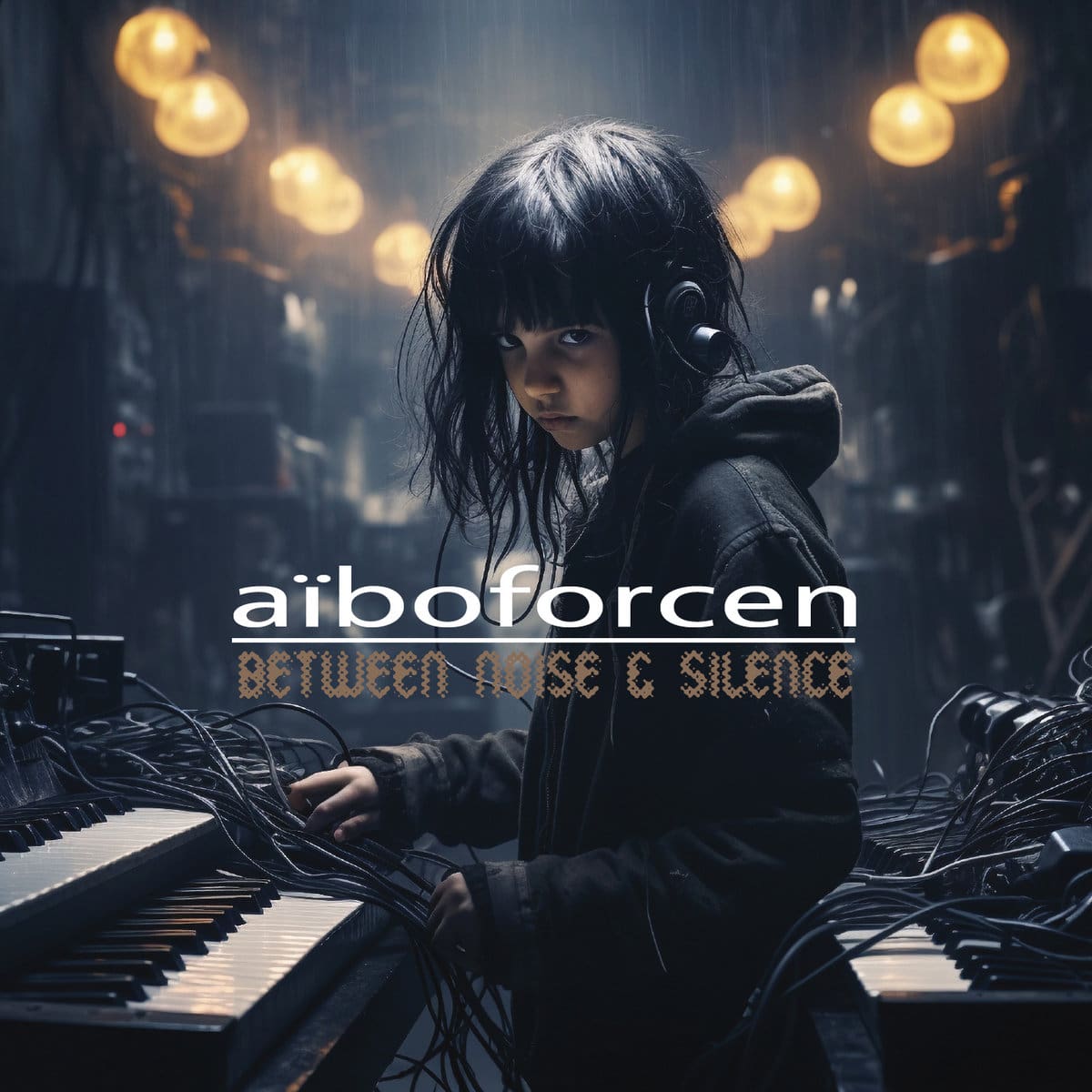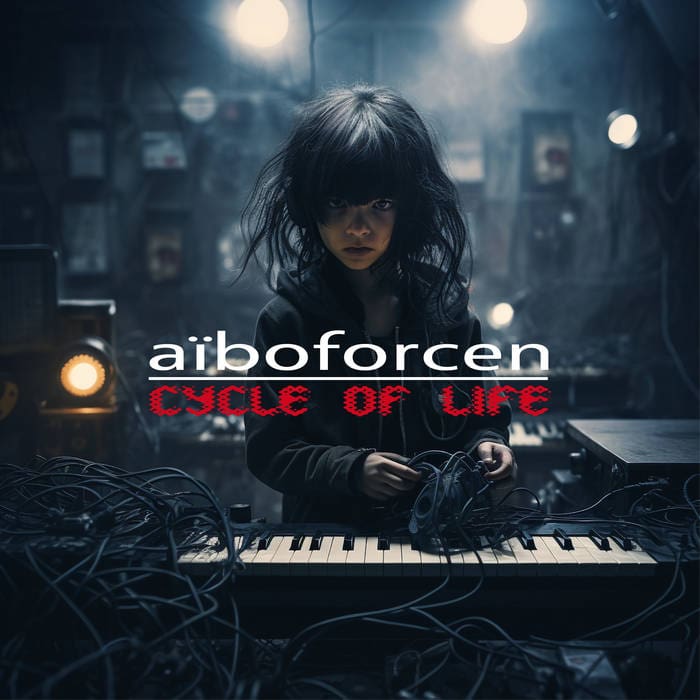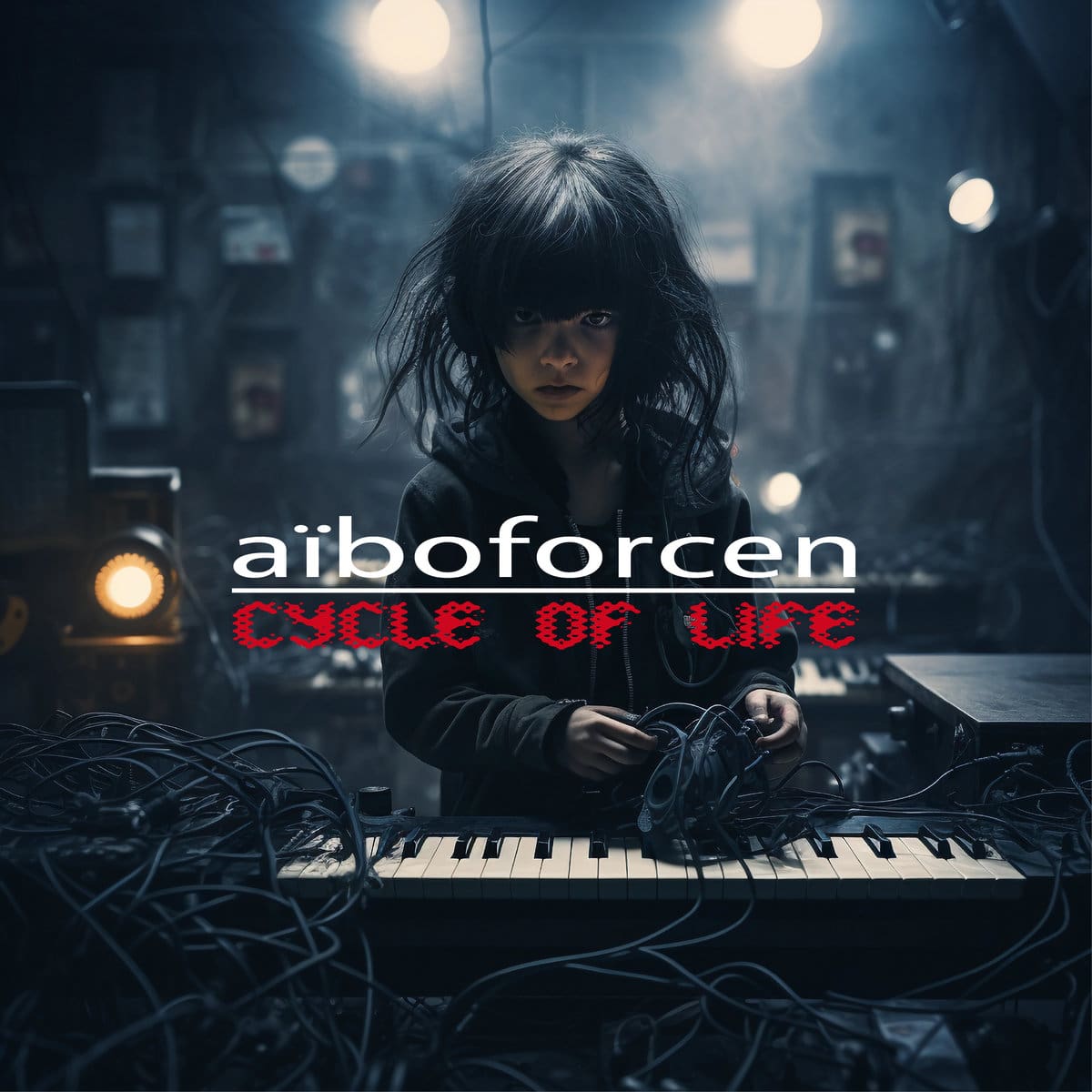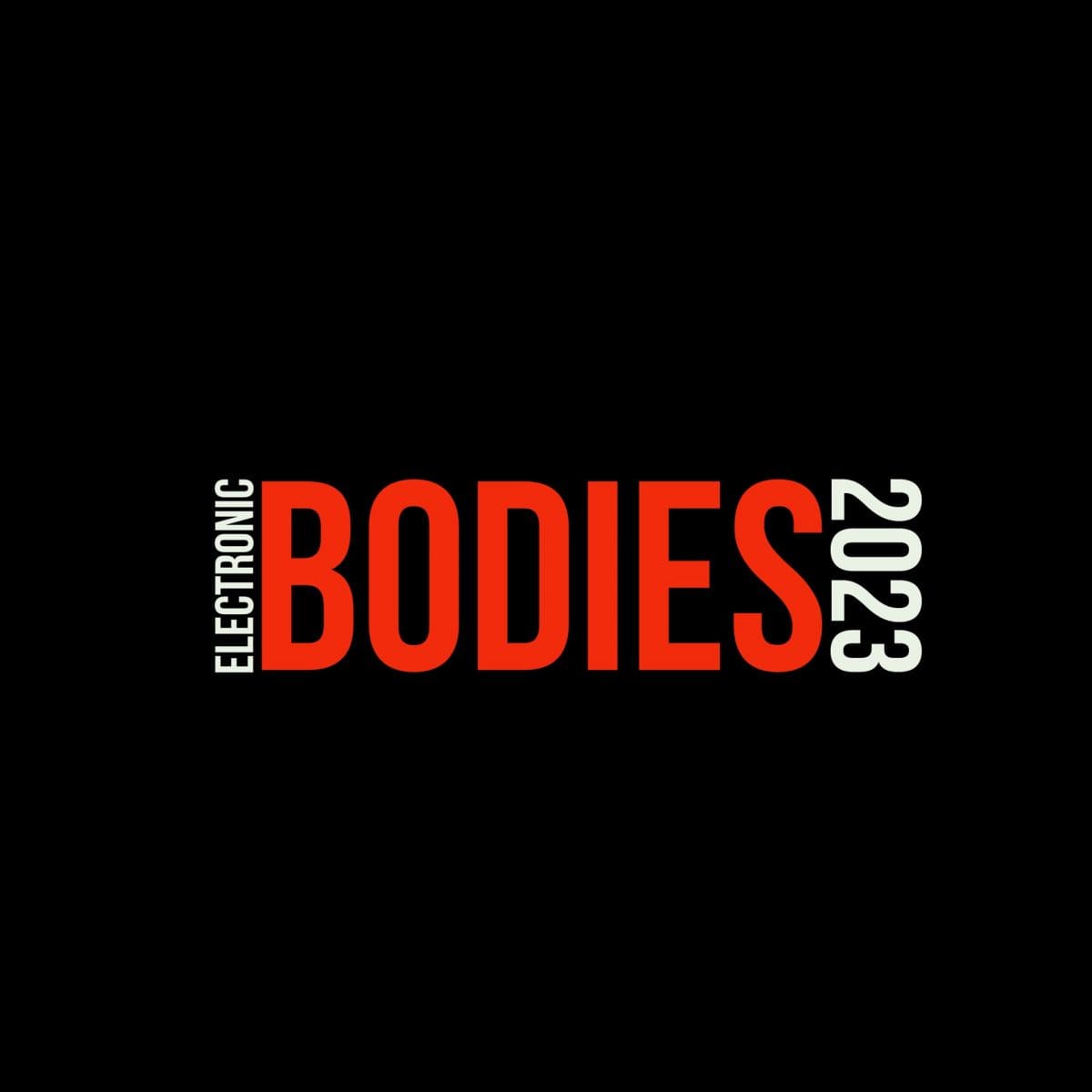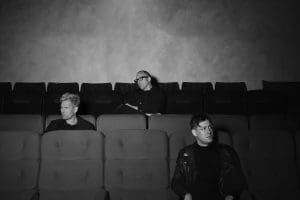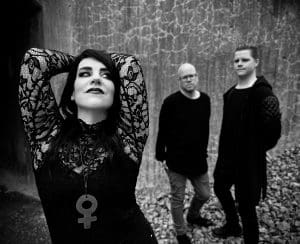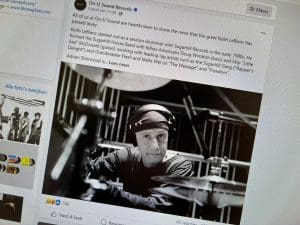‘Click Interview’ with Aiboforcen: ‘The Aim Was To Have A Poppier Album’
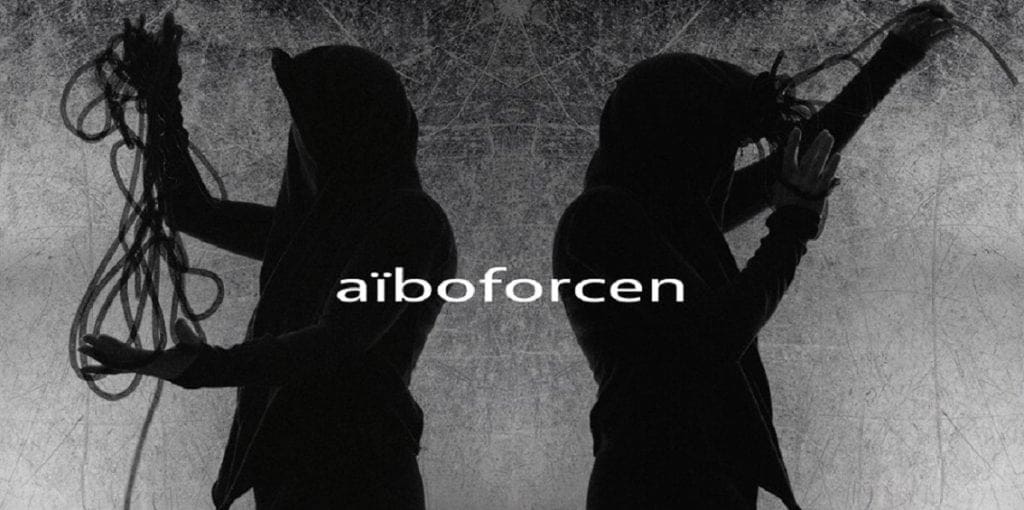

The album “Sense & Nonsense” marks the return of the Belgian formation Aiboforcen. Behind the band is hiding Benoît Blanchart, who’s still one of the Alfa Matrix label owners. He again worked with multiple ( and some famous) guest singers to achieve this opus. This studio-project remains a somewhat enigmatic electronic entity because of the sound, which is hard to define. Aiboforcen mixes EBM together with electro-pop and industrial sound treatments. Some songs are catchy while others are definitely experimental. “Sense & Nonsense” is the first new work in seven years, but you clearly will recognize the typical and sophisticated sound DNA this band is dealing with.
(Courtesy by Inferno Sound Diaries)
Q: Aiboforcen is back again and this after a hiatus of 7 years! What does Aiboforcen means ano 2018 and tell us a bit more about the core members and multiple guest artists?
Benoît: Well, the line-up is mainly the same as for the “Dédale”-album; this means myself taking care of the music/programs and Patrice taking care of the vocals for most of the tracks (helped by Wrex on lyrics and vocal recording). Then there are the numerous guests (maybe a bit more than usual) adding a special flavor or atmosphere on several tracks. I like working with guest vocalists because it breaks the monotony and help me develop different styles. The last track that was recorded/finished is “In My Arms” with Mari Kattman because she gave me the vocals a few months ago. But this track is also one of the first that I wrote just after ”Dédale”. It took a few years to find the right vocalist and moment to do it, and it was worth the wait! Normally there should be an EP rather soon with a few remixes of this one among others.
Q: When did you start writing the songs for the new album and is there something like a concept, lyrical themes and a kind of sound you tried to accomplish?
Benoît: I started working immediately after the “Dédale”-album, but the recording and writing process was interrupted a lot of time because of my other activities (mainly working on Alfa-Matrix which takes most of my free time). There were periods of 2 or 3 months without any music at all… there is no real concept behind the album, just a collection of songs that represent the different styles I like in electronic music: from softer almost poppy cuts to harsher EBM or industrial. I try not to repeat myself although I think I have some gimmicks or way of doing things that makes it sound like ‘Aiboforcen’ in the end. When I think it’s too poppy I add some harder sequences and when it’s too harsh I try to inject a few melodies! (lol)
Also the fact of waiting almost 7 years before the release of the album enabled me to select the best songs/tracks and also to work and improve each of them, working on little details, effects, structures.
Q: It has been always difficult defining the sound of Aiboforcen, but one thing is for sure, I experienced “Sense & Nonsense” as the most ‘pop’-driven work so far. What is it all about and how do you perceive the band’s evolution throughout the years?
Benoît: Yes, I always try to have it sounding melodious or catchy at first. When I start on a new track, most of the time I start with the melody and then I add the drums and so on… when “Sense And Nonsense” started to take shape it was indeed mostly a ‘pop’ or ‘danceable EBM’ kind of release except for a few cuts. Then at the end and as the release date was approaching we started adding the darker or more aggressive tracks. While working on the tracklist we added some of these tracks on the regular version of the album to keep it more varied. But indeed the aim was to have a poppier album than “Dédale”, and it’s a bit the case.
Q: You once more worked with an impressive list of guest singers. How do you chose them? Do you’ve personal criteria and/or references and how did it work? Don’t you think it’s easier to work with a vocalist side by side in the studio instead of working over the net?
Benoît: Yes it’s indeed easier to work in a studio directly with the vocalist, but with Patrice living so far away it wouldn’t be possible. The same counts for most guest vocalists. When I finish the demo of a track, I start thinking about the right person for doing the vocals, either male or female, harsher or softer. Then I look firstly in the Alfa-Matrix bands which are easier to contact. Generally the first impression is working well and the result is most of the time surprising and satisfying. As far as working with Jean-Luc from 242, it’s a long story. We actually already worked on a track for the “Dédale”-album, but weren’t totally satisfied with the result. We decided not to use the track and agreed we could maybe work later for another album. A few years later (2 or 3), I wrote the track “We Woke Up The Dragon” and immediately felt that it would be the right track for him. And he recorded it rather fast and the final version is also very close to the original demo. It was a pleasure working with such a professional guy and also a legend in the Belgian EBM scene.
Q: Talking about Jean-Luc De Meyer you also did a real unexpected thing asking him to sing on “Loud”, which is a cover version of Front 242! How did that happened and how did he react when he heard the song?
Benoît: Well, I had started working on the cover of “Loud” for the Alfa-Matrix tribute sampler to 242, but another band had already recorded it and finished it so I kind of dropped it. Then a few months ago, I decided to let him hear it to have his opinion and it seems that he liked it because the next day he had sent me a version with vocals. Then we thought that it was kind of schizophrenic of having a cover, but with vocals done by the original singer. In the end I talked a bit with him and Séba (Alfa-Matrix) and we thought that it would be a good addition to the album and we kept it. I like this version which is not the typical EBM kind of track, but his vocals are highly recognizable. I had no feedback on this by the other members of 242 though.. (lol).
Q: I often hear artists affirming that playing live is one of the most important things today to reach a wider audience. Why playing live has been never your cup of tea and why not setting up a live band with a singer and you behind the mixing desk (like Daniel B is doing)?
Benoît: Yes indeed playing live is an asset and enables you to reach new and younger listeners. But we have never been a live band and only played a few times and this happened a very long time ago. Nowadays it’s even more difficult because Patrice is living in California and hiring a vocalist just for concerts wouldn’t be fair because it wouldn’t be the real ‘Aiboforcen’. Furthermore I don’t have much time to spend working on a decent live show and it needs to be a bit more than just an industrial karaoke. It needs a bit more visuals and that costs time and money of course which is not possible to do for just two or three concerts. I had the idea of doing a kind of live with just the harsher and instrumental tracks, but It would need lots of efforts anyway. So at the moment live gigs are not an option though it could help us selling CD’s, t-shirts and so on. Fortunately we have a certain fan-base still buying CD’s and supporting us! Thanx a lot to them!! And also a big thank you to all the guest vocalists and artists who remixed us on this album…
Since you’re here …
… we have a small favour to ask. More people are reading Side-Line Magazine than ever but advertising revenues across the media are falling fast. Unlike many news organisations, we haven’t put up a paywall – we want to keep our journalism as open as we can - and we refuse to add annoying advertising. So you can see why we need to ask for your help.
Side-Line’s independent journalism takes a lot of time, money and hard work to produce. But we do it because we want to push the artists we like and who are equally fighting to survive.
If everyone who reads our reporting, who likes it, helps fund it, our future would be much more secure. For as little as 5 US$, you can support Side-Line Magazine – and it only takes a minute. Thank you.
The donations are safely powered by Paypal.

